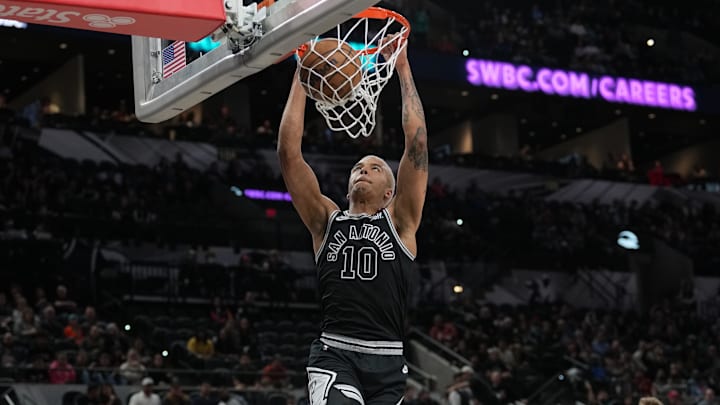2.) The bench will speed up Sochan's development
By coming off the bench next season, Sochan will have more opportunities to try and create in the second unit. That might seem counterintuitive, but it's true. Assuming he comes in around the six-minute mark of the first and third quarters, he may spend a few minutes playing with most of the starters before having a seven-minute stretch spanning quarters without them.
Those stretches where he is one of the only starters on the floor would give him the chance to play more with the ball in his hands. While he probably won't be playing point guard, there will certainly be some plays where he is the primary ball handler. Better yet, if he has shown improvement as a shooter, we might even see him using pin-downs as a way to create open looks for himself.
The freedom that Sochan could have in the second unit wouldn't be unique to him. For instance, had Boris Diaw not come off the bench, he might not have been given the opportunity to post up nearly as much. He proved to be an effective scorer on the block, particularly when guarded by weaker or smaller players.
That came in handy during the Spurs' title run in 2014, when the Thunder went small and were forced to double-team him in the post, creating open shots for the Spurs. That's not to say that Sochan will develop a skill that will help the Spurs win a championship next season. But coming off the bench will give him a chance to expand his game and develop skills that could make him a much more useful player down the road.
